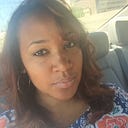February 1: The Greensboro Four, Dr. Helena Hicks, and Other HBCU Student Civil Rights Protesters
On this day in 1960, four North Carolina State A&T University students — David Richmond, Franklin McCain, Ezell Blair Jr., and Joseph McNeil — sat at a Whites-only Woolworth’s lunch counter.
“The best feeling of my life,” said McCain at the 50th anniversary of the act in 2010, was “sitting on that dumb stool.”
“I felt so relieved,” he told NewsOne at the time. “I felt so at peace and so self-accepted at that very moment. Nothing has ever happened to me since then that topped that good feeling of being clean and fully accepted and feeling proud of me.”
Their story is not unknown, but there is not a lot of conversation about what become of them after that day. Most of them would be unwelcome in Greensboro after graduation, but they’d go on to live very successful lives thereafter. Here are the highlights:
Five years before the four, on a cold January day in Baltimore, Morgan State College student Helena Hicks and a group of her classmates went in Read’s Drug Store to order a hot beverage. They were refused service, but they sat quietly at the counter waiting to be served anyway. One of her classmates, a student from Africa, risked deportation for breaking the law. But the students’ actions eventually led to a desegregation of Baltimore’s lunch counters.
“We were just students doing, you know, I dare you to put me out. You just don’t believe you’re making history, you certainly don’t think about that,” Dr. Hicks recalled in a 2012 interview with the Baltimore City Paper.
After graduating from Morgan, Hicks enrolled at Howard University for graduate school — and she picked the cause back up, going into all the eateries up and down Rt. 1 on the journey 45 miles south to Washington, D.C.
Dr. Crystal de Gregory, known also as the “HBCUstorian,” wrote in a recent commentary:
“Black protest at HBCUs is a tradition as old as the institution themselves — especially if one recognizes that to be black and educated defied conventionality which advanced that black folk were not educatable, much less smart.
In fact, black education in and of itself is a protest.
And for as long as black schools have existed, black college students have led the way in the forging by force, the making of modern America.”
As we remember and honor the Greensboro Four today, let us remember the sacrifices and courage of all of the HBCU students who have pushed for a better quality of life for us all.
